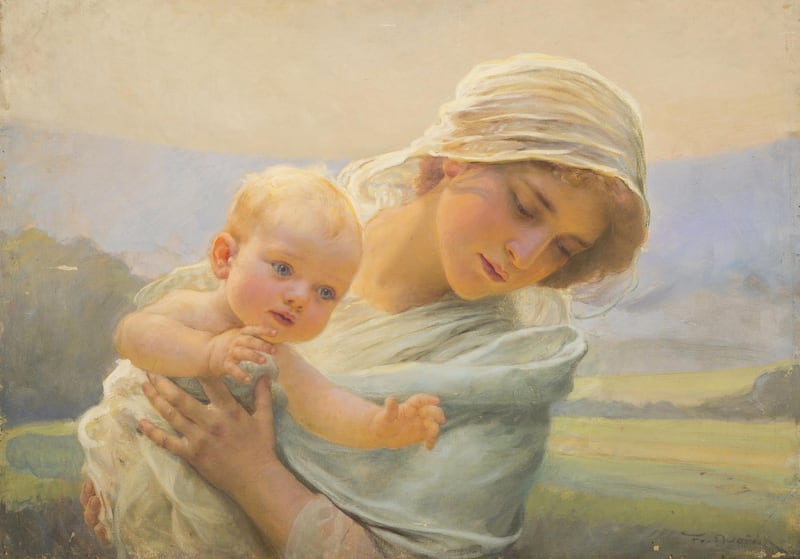“Happy Birthing Person’s Day!” doesn’t quite have the same ring to it, and, despite the update in politically correct terminology, you might want to stick to the standard “Happy Mother’s Day” greeting on Sunday. The phrase “birthing person” is becoming commonplace among those on the left, with Rep. Cori Bush testifying in front of the House Committee on Oversight and Reform this week about her experience as a “birthing person” for a bill ironically named the “MOMMIES Act.”
This mystifying shift in language is so new that even as the abortion-rights organization NARAL is now proclaiming that it’s the “inclusive” thing to do to refer to a woman as a “birthing person,” as recently as late February they were also still using the eminently reasonable (and accurate) phrase “pregnant woman.” Of course, the word mother would also do.
So if you feel like you can’t keep up with this evermore progressive lexicon, don’t worry, you’re not alone; we’re bound for another change of terminology soon all for the sake of what can only be called performative inclusiveness since it so often excluded people, like me, who call a mother, well, a mother.
Unfortunately, in the left-leaning portion of the world of doulas and lactation consultants, this has been the trend for a while; with “birthing person” and “chest feeding” replacing mother and breastfeeding as the appropriate industry-wide terminology. This trend is now seeping into mainstream Democratic circles, making its way into congressional record without a hint of reflection beforehand.
What does it say about our society that those who count themselves among the “feminists” and progressives are spending the week before Mother’s Day normalizing the erasure of all traces of femininity from motherhood? What does it do to our culture to promote the idea that anyone, male or female, can be a mother, and that there is nothing inherently feminine about the job?
What is a mother? Traditional gender roles are traditional for a reason — they’ve been around awhile; the parent who brings forth life, nurses the baby out of infancy and as that baby grows, mends a skinned knee or lovingly guides them through life’s vicissitudes.
Mothering isn’t easy, which is why Mother’s Day celebrations are encouraged to be a bit over the top. We’re told to lavish mom with gifts, attention and love because she deserves the best for everything she has done and continues to do all year long.
Mothering isn’t for the faint of heart; it’s physically, emotionally and spiritually engaging, and sometimes, yes, draining. But there’s a deep and profound comfort in being a mother — you’re the only one a crying baby or a sick toddler seeks out.
The job of mothering cannot be accomplished by a man or an amorphous “person,” it is the job only a woman could do. This is a fact that women, especially self-proclaimed feminists, should take deep pride in, and yet, they are working to undermine it instead. From growing a baby, to nursing it, to mothering it, motherhood is a monumental endeavor. It is the most powerful component of womanhood, and it’s what sets women apart from men in the most striking manner.
Feminists of yore have paved the way for women and men to have parity in countless ways; men and women have the same right and ability to vote, do the same jobs and more. Our household roles, and our ability to grow and nurture our young, is what makes females of every species in the animal kingdom most unique. But some so-called feminists are now working to strip from women the most empowering part of the female existence, and are doing a disservice to the female existence in the process. Perhaps they are achieving their ultimate goal: the total equalization of the male and female experience. But that equalization means the erasure of what sets me apart from my husband and reduces the beauty and power of motherhood to mere parenthood.
If so, this is a clear ideological opening for a new kind of feminist movement, one that doesn’t try to erase the female experience, but instead works to highlight its inherent uniqueness and beauty. These new empowered women ought to be promoters of what makes everything about femininity special and distinct from the male experience.
Its goal would not be to prove that men and women are the same, but instead that women are capable of what men never could or would be, namely, motherhood. Modern-day feminists subscribe to an ideology that holds that in order to be a woman, a man simply has to “feel” like a woman and don a dress in order to become a woman; but empowered feminists know that there is something more deeply intrinsic and nontransferable about womanhood, and it’s that special something that is motherhood.
It is the Creator’s great gift, allowing women to mother new life. We are not just “birthing people,” we are, as it says in the oldest of books, the mothers of all the living.
Bethany Mandel is a homeschooling mother of four and a widely published writer on politics, culture and Judaism. She is an editor at Ricochet.com and a contributor to the Washington Examiner blog and magazine.


